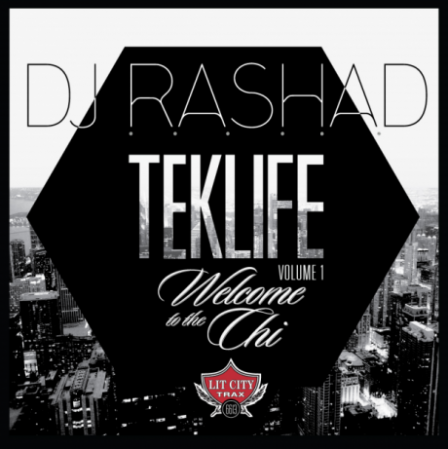Juan Atkins and Derrick May have both talked about how Detroit Techno, before its exportation to the raving fields of Europe, was an aspirational scene: a hipster avant la lettre mobilization of latent snobberies, a black visionary post-disco pop music in thrall to a well-heeled Euro-futurism. Just as Italian producers, operating under misspelt monikers like Sivy Foster and Malcom and the Bad Girls, pretended to be American, framing each Menardian re-recording of C’est Chic in cutout Itanglo gibberish, Detroit scenesters like Superlife and A Number Of Names pace egged an arch Italiano refinement as they shrouded a thunderspool electro-industrial chassis in Moroderian dry ice.
Chicago House, on the other hand, always had this de-individualizing, psychedelic experience at its core — a wild-eyed stamping of feet in a forest of bodies at the witching hour; a commune of chest-bared narcissists gurning in staged mourning, writhing in harness to a headbanging rattle of snares and toms.
Detroit’s Music Institute ran a no-liquor policy in its heyday, a single strobe light illuminating an Izod-clad dancefloor — Chicago’s equally iconic Warehouse ladled out acid-spiked punch to go with its studs-and-leather ambience, its mirror-balled interiors, its vaulted crêpe paper ceiling. It’s this Chicagoan spirit of down-to-earth opportunist decadence that haunts footwork’s MPC cantrips, as if the hard-earned equilibrium of establishment (“mature”?) house’s brainy frug has been torn and scattered into a zoetrope reel’s worth of clownish mutant forms.
Unlike the equally robust Da Mind of Traxman, “the erotic lit of footwork” (Pearson, B; TMT: 2012), DJ Rashad’s TEKLIFE Vol. 1: Welcome To The Chi doesn’t present a singular vision of what footwork should be. Instead, it feels like a State of the Union address from one of the genre’s central figures, a restless tyro goblinoid Dillaesthesis, ranging across what seems like the sum of footwork’s possibilities, from booty house updates like “Twitter” (“She on my Twitter/ I’m gonna hit her”) and “My Way Home” to future blueprints like “iPod,” “Fly Spray,” and “Over Ya Head.”
These last tracks, maniac oscillations between tension and release, are particularly attention-grabbing: the seed of something like a ‘hardwork’ style, perhaps; an integral pond-hopping encounter between house and hard dance that resembles techno’s earlier transatlantic encounter with Italo. It’s here that footwork overlaps with the ravery weirdness of poststep electronix; it’s here where lessons will be learned; it’s here where the magic secrets are stored.
Not that one can accuse Rashad of diffidence elsewhere: indeed, his USP, his particular chunklet of scenius, is that no one makes footwork so accessible yet so affably bonkers. A trio of tracks — “CCP”, “Kush Ain’t Loud” and “Chicago” — track their origins in the shop-front respectability of the jazz-funk canon to the spastic horizon of a uniquely inappropriate .GIF animation.
It should be clear that this is a form that deals in opposites, a parallax rhythm that undoes monetized reifications. The figure of the gangsta isn’t dispensed with, but refigured — Buster Keaton plays Don Corleone, house music’s Real Music pretensions infantilized with the prodigal iconoclasm of a Hype Williams mixtape — and this emphasis on refiguration and balance seems thrillingly coherent for a scene that spends much of its time impersonating an ice skater trying to put out a fire.
If Da Mind Of Traxman is to be the critic’s choice, this season’s Chicago must-have for every non-native, Welcome To The Chi, with its compilation-feel eclecticism, could get the tourist’s vote: a one-click authenticity upgrade, a sonic adventure tour of dancers’ apartments the night before a dance.
More about: DJ Rashad




